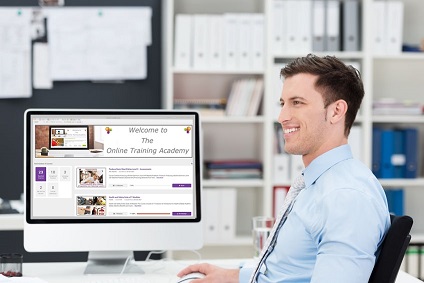
To get the most from learning online and ensuring that you remember, and can apply, your learning long term there are a number of things that can help you.
If you have not used online learning before it is very likely that you are going to learn some IT skills along the way, which you should see as a positive, rather than a frustration.
Our top 10 tips for studying online are:
1. Set yourself a plan of when you are going to study and for how long, and keep to it. Self-discipline is one of the biggest challenges when learning online, especially if you are studying in your own time rather than in the workplace.
2. Ensure you know how and where to get support, whether it’s with a problem with your device, how to navigate through the course or help with the course content.
3. Before you start your online training ensure that you have a good internet connection and that you are able to login to the training portal. There is nothing more frustrating than setting yourself a plan and on day 1 finding that you have a technological problem. If you do encounter a problem seek advice immediately.
4. Keep your study sessions short, interspersed with activities to check your understanding of what you have learnt, as this will help your memory. This format should really be built into your online course with games or quizzes that check your understanding, but if not then write down the main points you have learnt, and then revisit the learning to check how well you’ve done. After 30 minutes on your computer, laptop or tablet you should take a break; move around, get yourself a drink or have a chat with a friend or colleague;
5. Whether you have been asked to undertake an online course by your employer or you are doing it for your own personal development there will be a reason why you are doing it. If it is your employer who has arranged the training they will have an objective; perhaps you are going to be given more responsibility or they require you to be more knowledgeable about a particular process or legislation. It could be that the organisation will become non-compliant if the training is not completed, which is an important reason for undertaking the training, otherwise your job make be at risk. Whatever the reason keep it in mind, as this will help your motivation.
6. Whilst you’re studying if you encounter a problem or have questions about the course content don’t put off seeking support, do it straight away. Leaving a problem or a feeling that you don’t understand something is likely to cause you to procrastinate, ie. keep putting it off until tomorrow, and tomorrow never comes.
7. Avoid the mindset that you need to get through an online course as quickly as possible. Firstly you can jeopardise your chances of passing an assessment or test at the end of the course, and secondly you are very likely to forget what you’ve learnt within minutes of finishing the course.
8. Take notes during the course of the main points that you have learnt. For many writing something down improves their memory of it.
9. Go back over any part of the course that you don’t fully understand or are struggling to remember. Repetition is the best way of remembering, however for best results revisit information at regular intervals over a period of time. The longer the period of time the better your long term memory of what you have learnt will be.
10. If you are completing an online course where the duration is more than one or two hours professional development and you have the opportunity of using a course online forum for discussion, do make use of it. Others on the course may be encountering the same difficulties as you and there may already be advice or questions answered. Peers can often be the best source of support and motivation so take the time to participate.
Top ten tips written by Carolyn Lewis, Managing Director, eLearning Marketplace Ltd







 UK: 0844 854 9218 | International: +44 (0)1488 580017
UK: 0844 854 9218 | International: +44 (0)1488 580017








